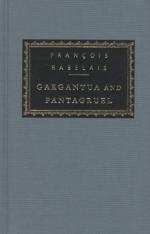|
This section contains 7,573 words (approx. 26 pages at 300 words per page) |

|
SOURCE: “Friendship and the Adversarial Rhetoric of Humanism,” in Common Knowledge, Vol. 3, No. 1, Spring 1994, pp. 40-53.
In the essay below, Langer considers the friendship between Pantagruel and Panurge in light of the competing intellectual beliefs of the time.
At the conclusion of the war against the Dipsodes and the giants, the hero of Rabelais' Pantagruel faces his Mohammedan counterpart, Loupgarou, the incarnation of Plautus' phrase, homo homini lupus [man is a wolf to man], a figure of hatred and cruelty among human beings.1 Pantagruel, the Christian humanist giant, finds himself in dire straits, his weapon, a ship's mast, shattered by Loupgarou's enchanted mace. In desperation he calls out to his friend, “Ha, Panurge, où es-tu?”, an appeal reminiscent of Christ's words, “My God, my God, why have you deserted me?” (Mark 15:34).2 Pantagruel's cry for help is in fact doubly reminiscent of Christ's words (pronounced in Aramaic, lama sabachthani...
|
This section contains 7,573 words (approx. 26 pages at 300 words per page) |

|


